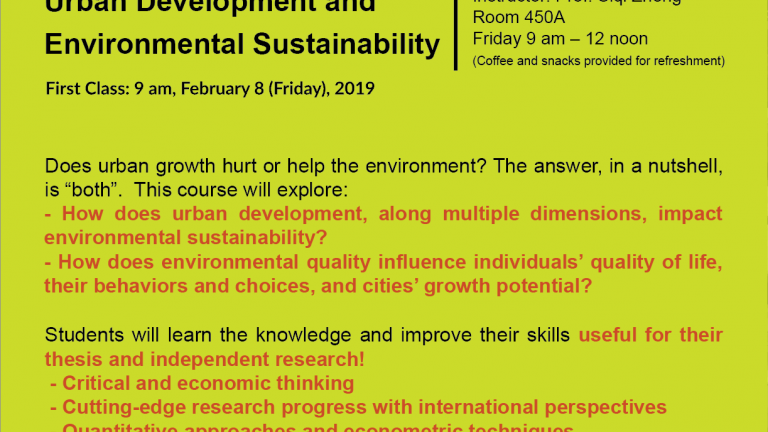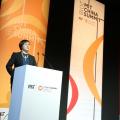
For those who may be interested, I am writing to let you know about my course, “Economic Analysis of Urban Development and Environmental Sustainability” (11.S940) offered this upcoming Spring semester.
Does urban growth hurt or help the environment? The answer, in a nutshell, is “both”. My course 11.S940 aims to guide you to explore and quantify the key mechanisms of the interplay between urban development and the environment: (1) How does urban development, along multiple dimensions, impact environmental sustainability? (2) How does environmental quality influence individuals’ quality of life, their behaviors and choices, and cities’ growth potential?
I will include six themes in this course: urban production; urban households; urban transportation; urban form; political economy; climate resilience.
You can learn the knowledge and improve their skills useful for your thesis and independent research!
Critical and economic thinking: Develop a systematic framework of the tension and synergy between urban development and environmental sustainability.
Cutting-edge research progress with international perspectives: walk through (and replicate) the high-quality empirical studies from both developing and developed countries comparatively.
Quantitative approaches and econometric techniques: data analytics, and basic and modern econometric methods for identification and causal inference.
Our class will meet once a week, on Friday morning 9 am – noon (coffee and snacks provided for refreshment). For further details, please see the attached poster and brief course description.
I look forward to seeing you at our first session: February 8, Friday, 9 am@ MIT 9-450A.
Siqi
--
Siqi Zheng
Samuel Tak Lee Associate Professor
MIT Center for Real Estate, and Department of Urban Studies and Planning
Faculty Director, MIT China Future City Lab (MIT-CFC)
Building 9-323, Email: sqzheng@mit.edu Webpage: http://siqizheng.mit.edu Phone: 617-253-3988






